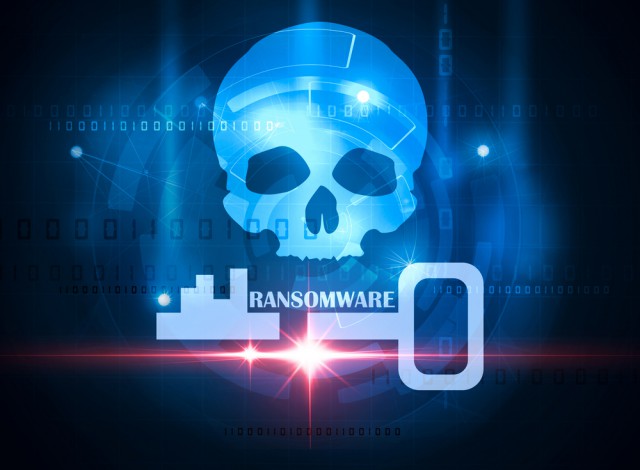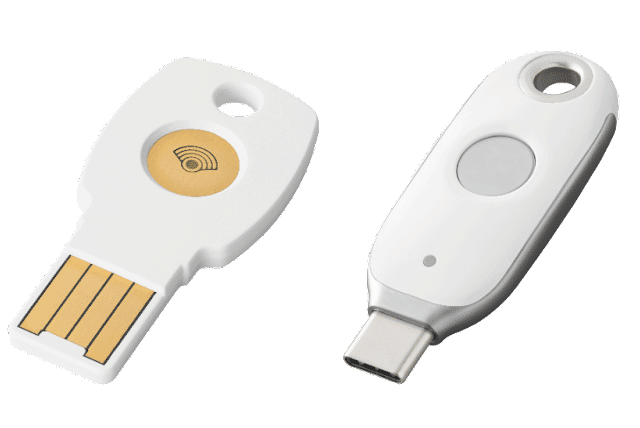
Why unintentional insider data leaks are still a problem for businesses [Q&A]
Whilst threats to data are often seen as being down to external actors, it's often the case that leaks, both intentional and otherwise, can come from insiders.
Unintentional or accidental leaks remain a major problem, and one that’s been made worse thanks to more home working. We spoke to Rajan Koo, SVP, engineering and cyber intelligence at DTEX Systems to learn more about this type of threat and how businesses can address it.

Half of cyberattacks are from repeat offenders
Half of attacks on organizations that caused severe business disruption were by repeat offenders, according to a new study carried out by Ponemon for threat intelligence firm Team Cymru.
What's more, 61 percent of the victims of these attacks say they were unable to remediate these compromises, leaving critical systems and data at risk.

More than half of US adults lack confidence in government's ability to fight cyberattacks
According to a new study from third-party ID risk specialist SecZetta 53 percent of respondents lack confidence in the strength of the US government’s infrastructure to protect the American people from cyberattacks.
Also 88 percent say organizations and government entities must have better data security systems in place to protect them from the increase in third-party remote attacks.

The challenges of securing Active Directory [Q&A]
As we saw in the recent SolarWinds attack, Active Directory can be exploited as a means of attacking corporate networks.
But why is AD such an attractive target? And why are companies struggling to secure it even though it's hardly a new technology? We spoke to Carolyn Crandall, chief security advocate at AttivoNetworks to find out.

SMB developers trust big cloud providers -- but not completely
A new survey for cloud computing company Linode, carried out by ClearPath Strategies, looks at how much developers trust their third-party cloud providers.
Based on responses from 800 developers at small and mid-sized businesses, it finds that while developers generally say they trust their provider of choice in general, deeper examination uncovers some issues when it comes to major cloud providers.

Remote Desktop Connection Manager is back after receiving important security update
Last year, Microsoft issued advice to stop using Remote Desktop Connection Manager (RDCMan) and turn to either Remote Desktop Connection or a universal Remote Desktop client instead.
The advice came after Microsoft deprecated RDCMan following the discovery of a serious security vulnerability which the company had said would not be fixed. But having been made part of the Windows Sysinternals tools collection, a fix has now been issued meaning that RDCMan is now safe to use once again.

Microsoft finally fixes PrintNightmare vulnerability with KB5005031 and KB5005033 updates
To help address the ongoing problems with the so-called PrintNightmare vulnerability (CVE-2021-34527), Microsoft has announced a change to the default behavior of the Point and Print feature in Windows.
The change has been delivered via the KB5005033 and KB5005031 update and means that in order to install printer drivers, users will have to have administrative privileges. This mitigates against the Windows Print Spooler vulnerability that allowed any user to install drivers via Point and Print, a fact that could be exploited to install a malicious drivers to allow for remote code execution and SYSTEM privileges.

Businesses need to focus on the basics to defend against ransomware
A new whitepaper released today by O'Reilly and based on a survey of tech professionals experiences of ransomware concludes that basic security practices like backups are key to surviving an attack.
Of 950 respondents to the study only six percent had experienced a ransomware attack directly in the organization they work for and, by and large, these organizations have strong security measures in place.

Banks speed up their AI adoption to combat money laundering
A third of financial institutions are accelerating their AI and machine learning adoption for anti-money laundering (AML) technology in response to COVID-19.
Meanwhile, another 39 percent of compliance professionals say their AI/ML adoption plans will continue, despite the pandemic's disruption, this is according to a new study by analytics company SAS, consultancy KPMG and the Association of Certified Anti-Money Laundering Specialists (ACAMS).

Enterprise network access for sale on underground forums
We know that cyber criminals are increasingly operating in a businesslike way and using underground marketplaces to sell services and information.
A new report from threat intelligence specialist IntSights looks at one particular aspect of this trend which is the sale of access to already compromised networks.

Salesforce misconfiguration can expose sensitive data
Researchers at Varonis are warning about a Salesforce misconfiguration that can expose sensitive data to anyone on the internet.
The issue is in the Salesforce Community, which lets Salesforce customers create their own websites to connect with users outside their organization and collaborate.

Google Titan Security Keys ditch Bluetooth
Google's Titan Security Key dongles are a great way to secure accounts using hardware rather than only relying on software. The search giant has offered these little devices for years now with USB-A, USB-C, and Bluetooth connectivity.
Back in 2019, Google discovered a vulnerability in its Bluetooth-capable Titan Security Key that lead to a recall. With that said, it is not surprising that in 2021, the search giant is dropping that wireless connection option entirely. You see, starting tomorrow, the Google Titan Security Keys are ditching Bluetooth to instead rely on NFC -- in addition to USB, of course.

Thousands sign letter asking Apple to scrap plans to scan users' photos for child abuse images
An open letter signed by privacy advocates, security experts, technology companies and legal specialists has been sent to Apple, decrying the company's plans to scan the photos of Mac, iPad and iPhone users for evidence of child abuse.
While on the face of it, Apple's "Expanded Protections for Children" plans are a good thing, it has also come in for heavy criticism. With the release of macOS Monterey, iOS 15 and iPad OS 15, the company is implementing CSAM (Child Sexual Abuse Material) detection which will check image hashes to see if they feature in databases of known abuse images. It has been likened to creating a backdoor to users' files and has horrified privacy experts.

How security teams can build a strong IT partnership for zero trust implementation [Q&A]
As the enterprise IT landscape has become more complex, security is no longer a matter of simply securing the network perimeter. The cloud and remote workers now have to be part of the equation too.
In order to cope with this, more and more businesses are turning to the use of zero trust methodology. We spoke to James Carder, CSO of SIEM platform LogRhythm to find out more about why this is a technology whose time has come and how it can be implemented effectively.

Google unveils new Nest smart home stuff
Google bought Nest more than seven years ago now, and since that acquisition, there have been many cool smart home devices to come from the search giant. Under the Nest branding, there's not just smart thermostats and cameras, but other products too such as doorbells and speakers. Ultimately, the name "Nest" has become synonymous with the smart home.
Today, Google unveils some new Nest smart home devices, and they are all camera-related. There is a new doorbell (with integrated camera) plus three new dedicated security cameras. What's notable is that the new doorbell and one of the new cameras can be run from a battery, meaning they do not require a hardwire power connection. One of the cameras features nifty floodlights too.
